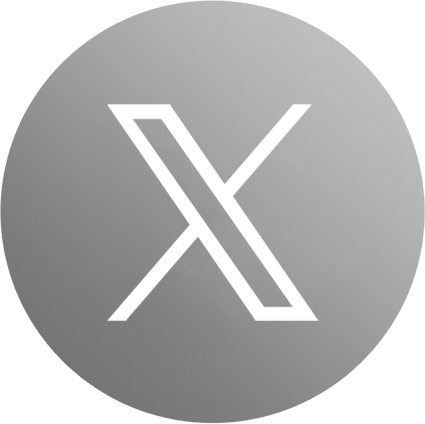TOS Council Election
In accordance with The Oceanography Society’s bylaws, the terms of four Council members expire December 31, 2024. Deborah Bronk (President) will move to the position of Past-President and Paula Bontempi (President-Elect) will step in as President. In addition, Andone Lavery (Past President), Mona Behl (At Large Councilor), Laura Guertin (Geological Oceanography Councilor), and Josette McLean (Student Councilor) will rotate off of the Council. The Oceanography Society thanks all of these representatives for their time, dedication, and valuable contributions to the organization. Candidates have been identified for these open positions, and biographical sketches of each candidate appear below.
The Council is the governing body of the Society. Therefore, voting in this election is an important function of membership. The persons elected will participate in directing the affairs and determining the future of the Society. Each candidate has been advised of the responsibilities and duties of the position for which he/she is standing, and each is prepared to devote the necessary time and attention to conduct the Society’s business.
How to Vote
All votes must be cast by December 4, 2024 (5:00 PM ET).
The Candidates
Candidates have been identified for each of the positions available. Brief biographical sketches for each of the candidates appear below. Scroll down to view them all or click on a name to jump to a specific biographical sketch.
President Elect
The At Large Councilor represents crosscutting issues including aspects of interdisciplinary ocean science, internationalization, and justice, equity, diversity, and inclusion (JEDI).
Geological Oceanography Councilor
The Education Councilor represents the ocean geological community including disciplines such as marine geology, petrology, geophysics, sedimentology, geological resources, marine geohazards, and paleoceanography.
Student COUNCILOR
The Student Councilor brings the perspectives of students to the council and works to cultivate engagement with TOS student members.
PRESIDENT ELECT
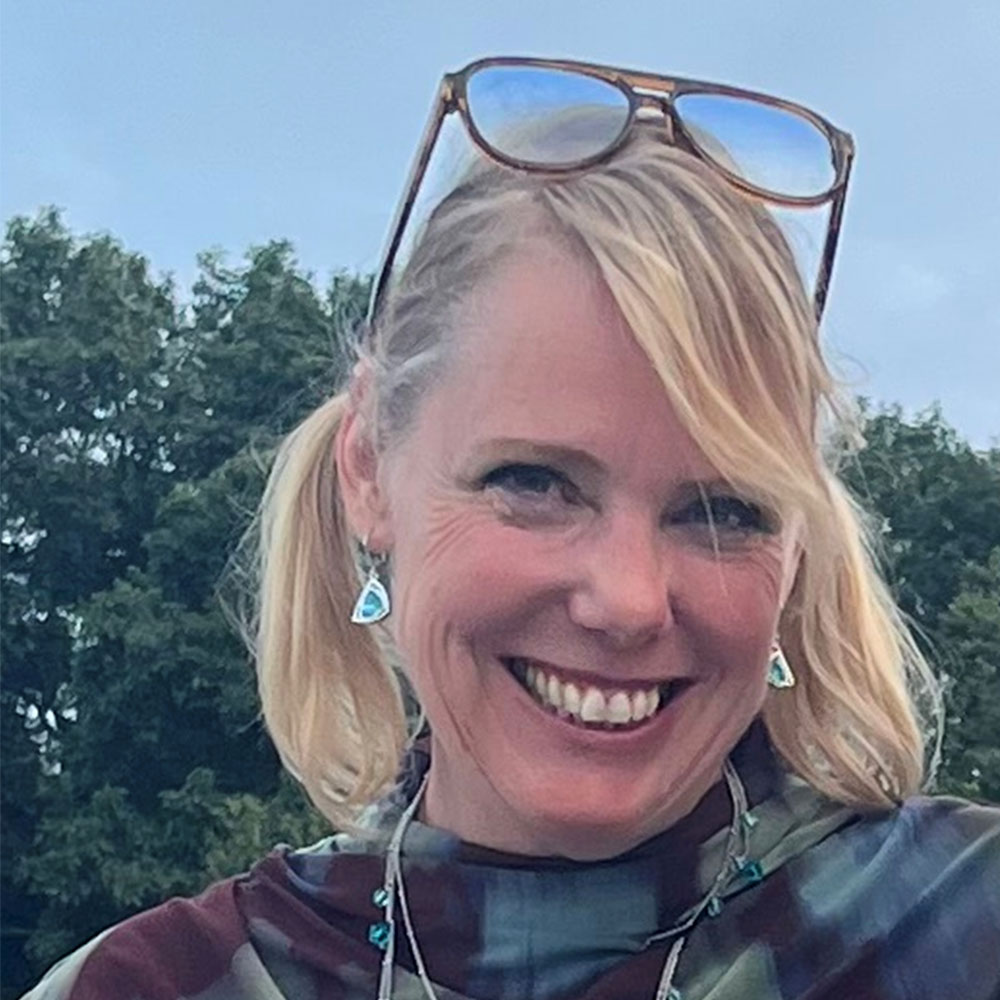
Heidi Dierssen
Professor Heidi Dierssen first graced the pages of Oceanography in 2005 in a volume dedicated to “Women in Oceanography” when she wrote an essay from the perspective of a soft money scientist embarking on a science career with a new family. She wrote about the lack of women oceanographers, and said: “I want to be an example for other female scientists and my daughters, in particular. I want to show them that they can have both a rewarding career and a family.” Nearly 20 years later, she is now a professor at the University of Connecticut dedicated to mentoring the next generation of oceanographers from diverse backgrounds and her children have successfully “flown the nest.” Heidi still enjoys teaching Introduction to Oceanography to freshmen and opening their eyes to how 70% of our planet operates. Heidi’s research spans both biological and physical oceanography focusing on developing novel technology to understand ecological and air-sea processes from phytoplankton to seagrass to whitecaps.
Her diverse, interdisciplinary background involves research at over 20 different marine institutions across the globe and serving on a dozen different mission teams focused on monitoring changes in the global and coastal ocean. She received her B.S. and M.S. from Stanford University in Biology, her Ph.D. from the University of California Santa Barbara in Geography, and was a postdoc fellow at Moss Landing Marine Labs and the Monterey Bay Aquarium Research Institute. She served as the Science and Applications Team Leader for the recently launched NASA Plankton Aerosol Cloud and ocean Ecosystem (PACE) satellite mission exploring new ways to evaluate phytoplankton community composition and interactions between the ocean and atmosphere. Her expertise in hyperspectral optics has made her a member of many international advisory and working groups related to developing satellite technology to address climate change and human interactions with the environment.
Heidi is honored to be nominated for President Elect because The Oceanography Society (TOS) is by far her favorite scientific society. She appreciates that TOS delves not only into promoting science but also into the “business” of doing science. She notes: “I always seek out the TOS booth at the giant Ocean Sciences meeting to say hello to the TOS team and have a personal moment relaxing on the couch amidst the chaos.” The TOS magazines provides a great forum for tackling topics from icy seas to ocean worlds beyond our planet, as well as providing hands-on teaching tips to share with students. She wishes to formally expand TOS’s mission of recognizing excellence, disseminating knowledge, and promoting communication to also include training and mentoring of the next generation of oceanographers. She strongly believes that TOS should continue to tackle diversity and equity issues, best practices for mentoring students and early career faculty, teaching the next generation of oceanographers, navigating career choices and trajectories, and managing to balance personal and work life, especially given challenges from unexpected interruptions like the pandemic. How do we improve the culture in in our institutions and inspire upcoming leaders? If elected, she would dedicate herself to working collaboratively with the President, Council, membership, and partners to continue the important mission of TOS.
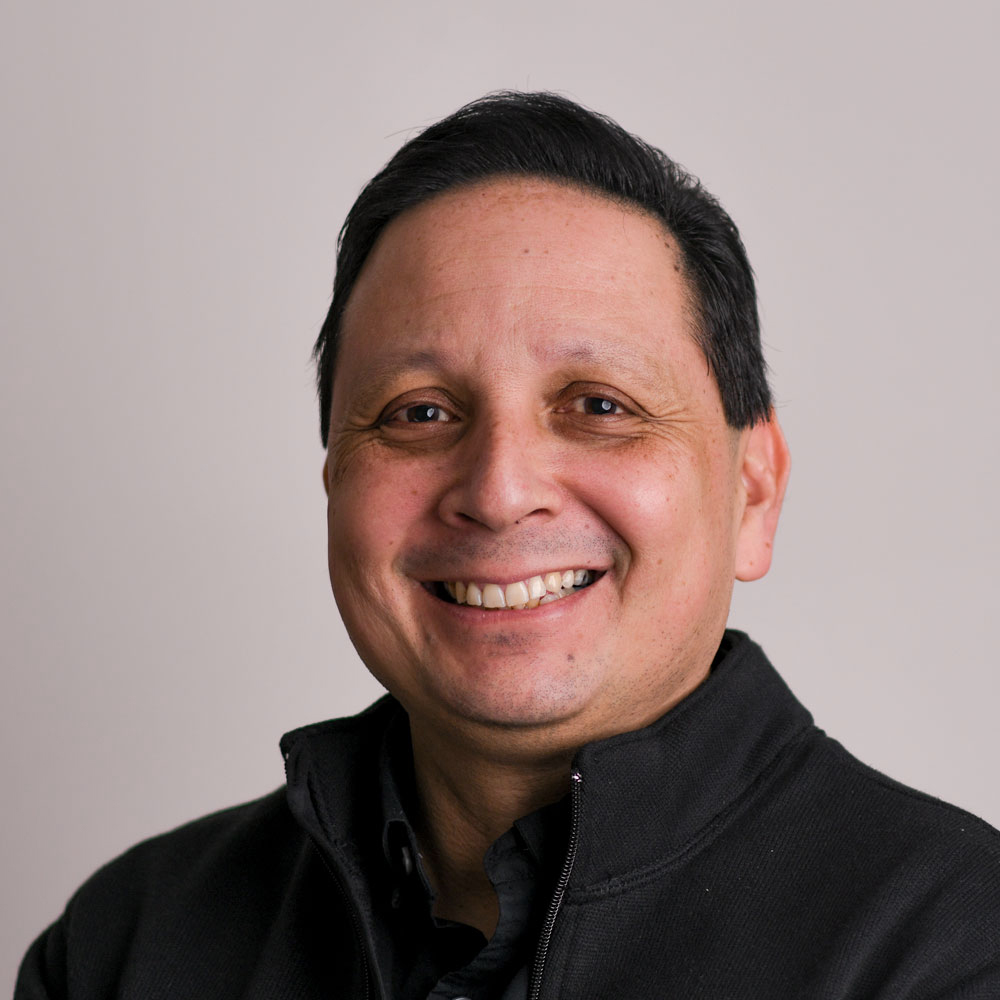
Corey Garza
Corey Garza is the Associate Dean of Diversity, Equity and Inclusion in the College of the Environment, and a Professor in the School of Aquatic and Fishery Sciences at the University of Washington. Prior to his current position, he spent 15 years as a professor and founding faculty member in the Department of Marine Science at California State University, Monterey Bay where he helped develop curricular pathways and research infrastructure for an emerging academic program. He has also worked as a research ecologist with the National Oceanic and Atmospheric Administration (NOAA), Northeast Fisheries Science Center where he served as the science lead for the Long Island Sound Study. His research focuses on the use of uncrewed aerial systems, GIS, image analysis, statistics, and machine learning to study spatial dynamics in coastal ecosystems. He also focuses on the development of programs to increase diversity in the ocean sciences. For the last 12 years, he has overseen NSF and NOAA sponsored programs focused on improving student diversity, and leadership training programs that aim to create inclusive training and work environments in ocean science. As part of this effort, he helped establish ocean science programming at the annual SACNAS (Society for the Advancement of Chicanos/Hispanics and Native Americans in Science) that supports student engagement in the ocean sciences. Corey is also a committee member for the National Academies of Sciences, Engineering, and Medicine Increasing Diversity, Equity, Inclusion, Belonging, Accessibility, and Justice (DEIBAJ) in the US Ocean Studies Community. He is a fellow of the California Academy of Sciences and sits on their board of trustees. Corey is currently concluding a 4-year term on the board of directors for the American Geophysical Union and previously served on the board of directors for SACNAS. He received a Bachelor of Science in Biology from California State University, Los Angeles in 1995, and a Ph.D. in Ecology, Evolution and Marine Biology from the University of California, Santa Barbara in 2001.
Corey is honored to have been nominated to serve as The Oceanography Society President. He believes scientific societies, such as TOS, play an important role in helping to advance science by providing a space for the exchange of new ideas and supporting the development of a new generation of scientists. If elected as TOS President, Corey looks forward to working with the TOS leadership and its members on developing new pathways and partnerships for TOS that can help support the advancement of ocean science in the 21st century. This may include the development of professional development programs to support the changing needs of TOS’s members and developing partnerships to help open new avenues of scientific inquiry. Oceanography magazine provides one critical medium through which TOS and its members can communicate how it is engaging in novel research to help expand our understanding of the ocean and how research can address some of the most pressing environmental issues of the 21st century. More broadly, Oceanography can provide a platform to engage the diverse talents and perspectives that will be needed to develop solutions that can address the impacts of climate change on the oceans. Having recently served as an editor on the special Oceanography issue on “Building Diversity, Equity, and Inclusion in the Ocean Sciences”, Corey understands how Oceanography can provide a wide-reaching platform to communicate the how and why of the need to diversify the talents and ideas found within the ocean sciences. Corey looks forward to having the opportunity to work with the TOS membership, and its leadership on how to engage the multitude of perspectives in TOS to advance the diversity of opportunities available to its members.
At Large Councilor
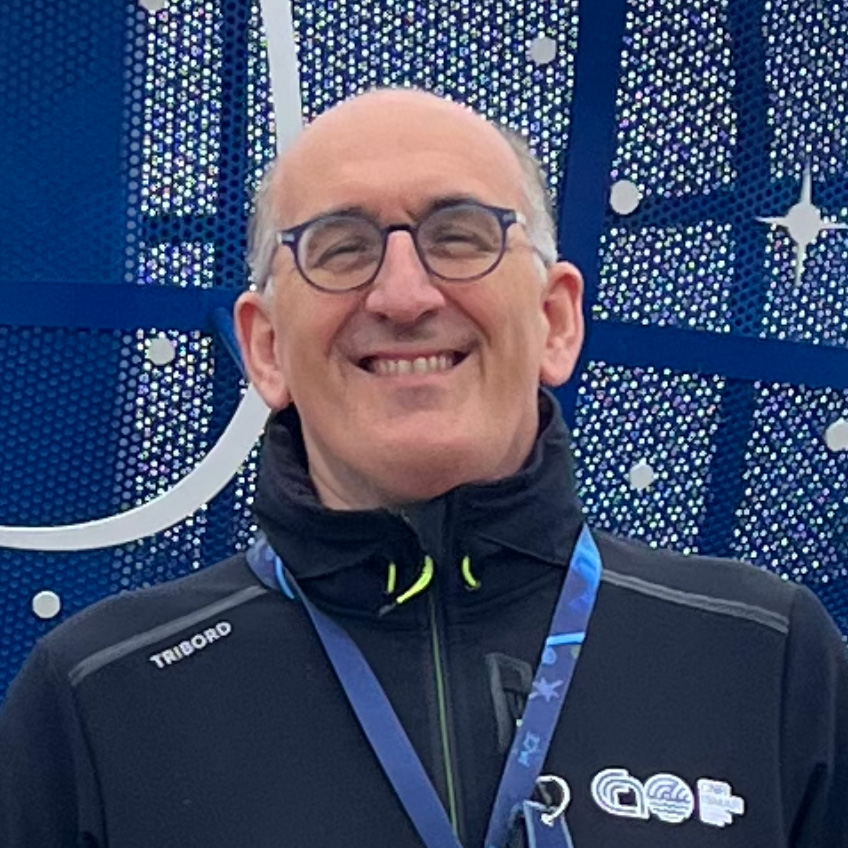
Vittorio Brando
Dr. Vittorio E. Brando graduated cum Laude in Environmental Sciences at the University of Venice in 1995 and obtained a PhD in Environmental Systems Modelling at the University of Padua in 2000. His research activities focus on optical oceanography and earth observation of optically complex waters in inland, coastal, and marine environments.
Vittorio was at CSIRO in Australia from 2000 to 2013, where he was Principal Investigator for several large collaborative projects focused on the development of applications of Earth Observation for the environmental management of the Great Barrier Reef coastal waters and on the addition of optical oceanography data streams to the ocean observing infrastructure in Australian coastal and marine environments.
In 2014 he returned to CNR in Italy with a two-year Senior Marie Curie Fellowship to assess the most suitable satellite observation classes for fine scale oceanographic processes to investigate the spatial and temporal variations of river plume characteristics in coastal waters. Since 2020, Dr. Brando is Dirigente di Ricerca (Research Director) at CNR-ISMAR in Rome where he oversees the delivery of operational ocean colour data streams in the ocean observing infrastructure for European coastal and marine environments. He serves as the Leader of the Ocean Colour Thematic Assembly Center in the Copernicus Marine Environment Monitoring Service as well as partner PI and/or WP leader for several collaborative projects funded by EU’s H2020/HE, ESA, EUMETSAT, and ASI.
Dr. Brando has led several field campaigns and research voyages in inland, coastal and shelf waters for the optical characterization of temperate and tropical aquatic systems, spending on average ~20-30 days at sea per year. Since 2017, he is contributing to design of autonomous hyperspectral above-water radiometers and of their network of validation of satellite aquatic radiometry and he is the PI of three sites.
In 2024 he was the chair of the Copernicus FICE24 training course on above water radiometry for ocean colour satellite validation held in Venice. He is Committee Member of the International Ocean-Colour Coordinating Group (IOCCG), Member of the ESA Mission Advisory Group for Copernicus Sentinel-3 NextGen Optical and of the DLR EnMAP Science Advisory Group.
Vittorio is grateful for the nomination to serve TOS as At-Large Councilor. If elected he aims to broaden the engagement by TOS in Europe in the education and outreach of ocean sciences and to strenghten the relationships within the oceanographic communities across continents.

Leonard Pace
Leonard Pace is the Science Program Senior Manager at Schmidt Ocean Institute (SOI). Since 2013, he has led the selection process for interdisciplinary science projects aboard SOI’s research vessels Falkor and Falkor (too). His work at SOI has involved collaborations with over one hundred organizations from around the world, and he is thrilled to be directly engaging with researchers in the southern hemisphere in support of SOI’s next ten years of operations below the equator. He also holds a leadership role with the Ocean Coalition, a joint effort across several of Eric and Wendy Schmidt’s foundations, providing grant support to programs and projects aimed at improving justice, equity, diversity, inclusion, and accessibility in marine sciences. Leonard’s work prior to joining SOI concentrated on supporting federal granting and program coordination with the National Science Foundation, the National Oceanic and Atmospheric Administration, and the U.S. Fish and Wildlife Service.
He received his B.Sc. in Marine and Environmental Science from Hampton University, and his M.Sc. in Fisheries Biology from the Virginia Institute of Marine Science. His primary focus was on elasmobranch physiology and he also conducted research on Great White Shark ecology in South Africa and Naked Dragonfish respiration in Antarctica.
If elected to serve as a Council member, he would look forward to working with all Council members to further the work that has been done towards making the discipline of oceanography accessible to anyone interested and representative of all whom the world’s ocean touches. In addition, he would seek to enhance the collaboration between The Oceanography Society and the philanthropic community, as it is playing an increasingly important role in supporting ocean science.
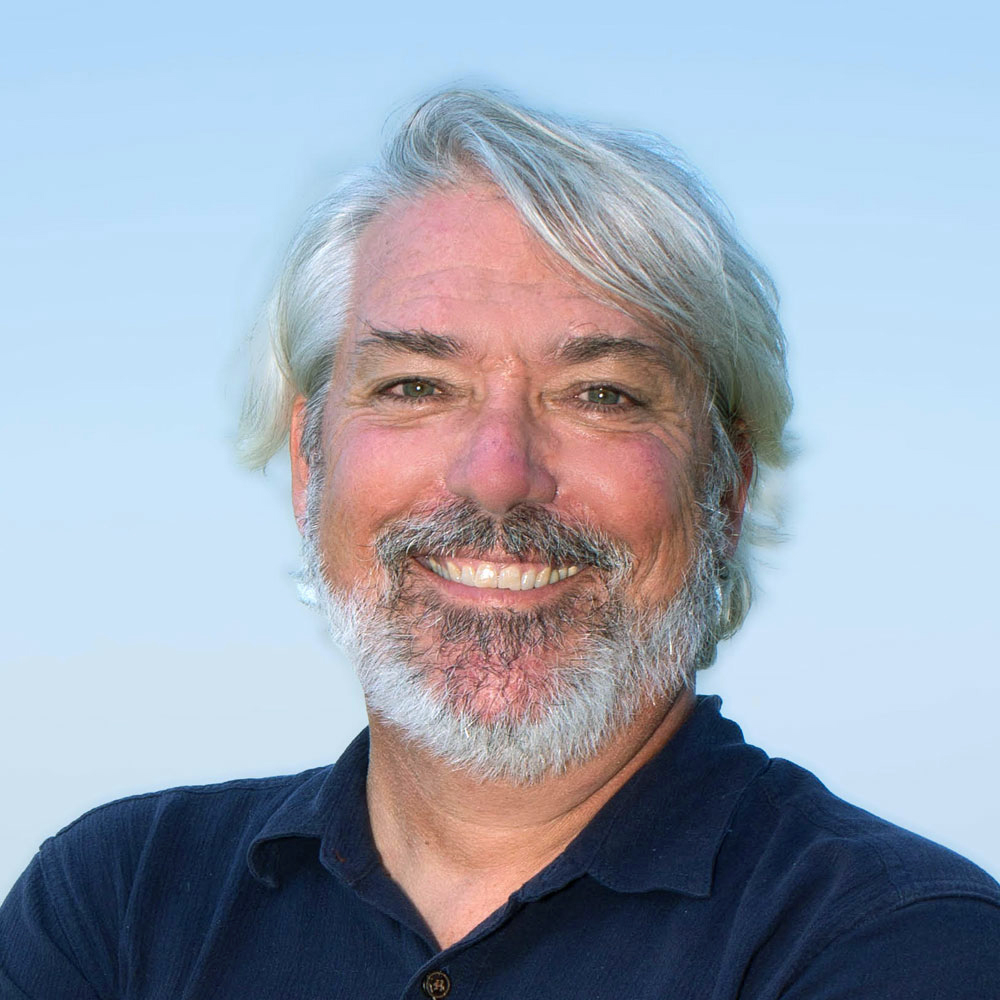
Jamie Pierson
Jamie Pierson is a professor at the University of Maryland Center for Environmental Science, based at the Horn Point Laboratory. He is a biological oceanographer focused on zooplankton ecology and working on broadening participation in ocean sciences. Jamie received Masters’ and PhD degrees from the University of Washington, School of Oceanography, and a BS in Biology with a concentration in Marine and Freshwater Biology from the University of New Hampshire. Between his undergraduate and graduate degrees, he worked at the Graduate School of Oceanography at the University of Rhode Island as part of the US GLOBEC Broadscale Survey zooplankton ecology team. Jamie’s research has focused on the role of individual behaviors, including migration, feeding, and reproduction, on mesozooplankton populations and plankton food webs. A great deal of his work has been to increase our understanding of how deoxygenation and climate change impact individuals and populations of zooplankton in estuarine, coastal, and open ocean ecosystems. Collaboration has been a hallmark of Jamie’s research. His research has encompassed a broad range of time and space scales and considered bottom-up and top-down processes. In addition to his work with TOS, he has served on ASLO committees and currently is a member of the ICES Working Group on Zooplankton Ecology.
Jamie firmly believes that broadening participation and fostering a sense of belonging and acceptance in ocean sciences is essential to growing the field and maintaining its relevance in the modern world. He is a co-PI on the NSF INCLUDES SEAS Islands Alliance, which seeks to better understand what actions are most effective to broaden participation and foster a sense of belonging and inclusion at all levels of the ocean science workforce across Puerto Rico, Guam, and the US Virgin Islands, and implement those actions. He has been a member of TOS since joining as a graduate student, and a member of the TOS JEDI committee since its creation in 2020. As a member of that committee, he worked with other members to host town hall events at the 2022 and 2024 Ocean Sciences meetings to gather input from the community on how the society can foster the goal of increasing justice, equity, diversity, and inclusion in ocean science.
As an At-Large Councilor for TOS, Jamie will continue to support the mission of TOS through work with the Council and the TOS committees. Jamie sees this opportunity as a means to pay forward the support and mentorship the ocean community has afforded him throughout his career. He plans to work on initiatives to support members of the ocean science community at all career stages through educational, professional development, and scientific opportunities, and to find ways to grow the TOS membership community.
Geological Oceanography Councilor

Jonathan C. Lewis
Jon Lewis (he/him/his) has been an active member of TOS since early 2018 and is honored to be nominated. His commitment to serving the geological oceanography community as a Councilor is elevated at this moment of major challenges and pivotal opportunities. The U.S. is at an inflection point in leadership as the workhorse drilling vessel JOIDES Resolution (JR) is no longer available to the International Ocean Discovery Program (IODP), and in three years will be at the end of its service life. Jon is motivated to leverage TOS to showcase IODP in new and creative ways, including building on the March 2019 issue of Oceanography. High quality sub-seafloor sampling is a trademark of the JR and many critical hypotheses about our planet remain untested. Jon would look for mechanisms to support continuing U.S. leadership in what has been argued to be the most successful international research collaboration of our age.
Jon is also anxious to capitalize on opportunities for synergies as the Ocean Observatories Initiative (OOI) matures. The unprecedented data streams provided by OOI present us with powerful opportunities to bring many more people into the exciting world of Oceanography and STEM more broadly. Our fields have remained stubbornly homogeneous despite numerous efforts to broaden participation. As a Councilor, Jon would advocate for building on emerging synergies that advance OOI, the U.S. Academic Research Fleet and IODP, creating new pathways for meaningful connections with members of communities that have historically been excluded from STEM.
Jon has been on the faculty at Indiana University of Pennsylvania for 20 years where he is a Tenured Professor of Earth Science. He is a structural geologist and has focused his research in SW Japan both on land and offshore, in Taiwan, along the western edge of North America, and in Costa Rica. Since 2015 he has been leading research on innovative learning environments. He is a founding co-PI for the NSF-funded STEM Student Experiences Aboard Ships (STEMSEAS) project that was recently renewed. Jon has led marine geology research since 2007 when he sailed as a structural geologist on IODP Expedition 315. That experience drilling the Nankai Trough plate boundary rearranged not only his research agenda but also his community service goals. The experience showcased the impressive capabilities of IODP, and the energetic community of scholars engaged in marine geology research. Jon served for 3 years on the U.S. Science Advisory Committee and then for 3 years on the Science Evaluation Panel as part of his commitment to IODP and advancing marine sciences. In parallel Jon served as an instructor for the IODP School of Rock Program. That first experience in 2012 is the seed that initiated the vision for the STEMSEAS project that harnesses the power of going to sea for undergraduate students from all backgrounds. To date STEMSEAS has provided nearly 300 undergraduate students with powerful seagoing experiences. Most recently Jon served as a 2023-24 Ocean Discovery Lecturer for IODP. As a Councilor, Jon would bring vision, sweat equity, and creative partnerships to TOS members, to our next generation of students, and to the public face of marine science.

Jeffrey Ryan
Dr. Jeffrey Ryan is a Professor of Geology in the School of Geosciences at the University of South Florida, where he has been since 1991. He has served as the Chair of the USF Geology Department, and as the founding Director of the USF School of Geosciences. He earned a B.S. in Geology at Western Carolina University, and a Ph.D. in Geological Sciences from the Lamont-Doherty Earth Observatory at Columbia University. He is a “hard rock” petrologist/geochemist with considerable expertise in the analysis and use of trace elements to track petrogenetic processes, best known for his foundational work measuring and examining the elements lithium, beryllium, and boron in volcanic systems, and for his studies of “fluid-mobile” element systematics in subduction-related igneous and metamorphic rocks, moving up and down the plate interface to understand the geochemical role of the downgoing slab, from the shallow forearc into the deep mantle sources of intraplate lavas. Dr. Ryan’s geoscience research has long been strongly marine-based, and for the last decade he has been involved primarily with studies associated with his role as a Shipboard Inorganic Geochemist on three different Expeditions of the International Ocean Discovery Program (IODP): examining the origins of early-formed igneous and metamorphic rock sequences from the shallow forearcs of the Izu-Bonin and Mariana subduction systems on IODP Expeditions 352 and 366, and studying the formation and seafloor evolution of slow-spreading ocean crust as part of the South Atlantic Transect effort on IODP Expedition 393. In his Shipboard roles, Dr. Ryan has led in the development and use of handheld portable X-ray fluorescence spectrometry as a quantitative shipboard analytical tool for the rapid characterization of recovered hard-rock core materials.
Jeff is also active in the scholarship of geoscience education, both as an NSF funded investigator and on teams leading national discussions on the future of undergraduate and graduate education in the geosciences. He led an NSF-funded Research Experiences for Undergraduates Site effort from 1997-2002, and then served as a Program Director in the National Science Foundation’s Division of Undergraduate Education from 2003-2005. He has since conducted NSF-supported studies of best practices in course-based undergraduate research experiences (CUREs), most recently focusing on the classroom study of IODP recovered core materials; effective classroom uses of geospatial information resources and earth and planetary geo-datasets, and into using digital animations/dynamic visualizations of deep-earth processes as instructional tools. He has led or co-led a number of Federally-funded faculty professional development efforts, on the effective use of geospatial tools and related cyberinfrastructure in college teaching, and on helping geoscience faculty develop and/or adapt effective educational improvements in their courses. He was part of the convening committee and a co-author of the 2021 AGI report Vision and Change in the Geosciences: The Future of Undergraduate Geoscience Education; and he was a PI on the NSF-funded “Summit on Improving Geoscience Graduate Student Preparedness for the Workforce” series of meetings and events, and co-authored the recently published AGI report Vision and Change in the Geosciences: Shaping the Future of Graduate Geoscience Education.
Jeff is both surprised and honored to be nominated to serve as Geological Oceanography Councilor. If elected Jeff hopes to leverage the benefits of his experiences and expertise in marine geosciences and geoscience education to support the mission of TOS in helping grow oceanographic (and especially ocean drilling-related) research, and in communicating its importance to the broader STEM community and the public.
Student COUNCILOR

Moronke Harris
Moronke Harris (moronkeharris.com) is a deep-sea oceanographer with experience in climate engineering and intergovernmental, multi-vessel research expedition planning on the high seas. She is fascinated with exploration, innovation, and the blue economy. As a 4th-year graduate student in the School of Earth and Ocean Sciences (SEOS) at the University of Victoria (UVic; Canada), her research focuses on sustainable innovations provided by hydrothermal vent ecosystems 1000-4000 m under the ocean’s surface.
Leadership Experience
Throughout my time at UVic, I have been passionate about the processes of university governance and navigating these processes to improve student academic experiences. As a 2-term elected Student Senator (2023-2025), I play an active role in shaping institutional policy and governance. On the Senate Committee on Appeals, I worked to ensure that student concerns were fairly considered and addressed by advocating for transparency and equity in the appeals process. As a current member of the Senate Committee on Agenda and Governance, I help shape the strategic direction of the University Senate, guarantee student participation in decision-making processes, and promote initiatives that foster inclusivity and academic excellence. As a 2-term elected SEOS Graduate Representative (2021-23), I spent time working to build relationships at the faculty level, deepening my understanding of how budgets, policies, and processes impact the lives of students and staff and ensuring students have allies on our side when it matters most. This led to actionable change concerning SEOS funding transparency and increased our minimum annual stipend by $2,000.
My dedicated contributions to UVic are bolstered by broader leadership involvement within the global marine community as a member of the Ocean Wise Board of Directors and the UN-recognized Early Career Ocean Professionals Canada Advisory Board, and the TOS Student Committee. In these roles, I have collaboratively led diverse teams to achieve shared goals focused on early-career development. Passionate about TOS activities, I served as an assistant to Josette McLean (outgoing Student Representative on TOS Council) and Somita Chaudhary (TOS Student Representative on the 2024 Ocean Sciences Meeting [OSM] Planning Committee) after taking the initiative to create the opportunity by requesting involvement in student-centered planning for OSM 2024.
Election Platform
My key leadership experience, pre-existing relationships within academic and industry governance and strong background in intergovernmental initiatives position me to be an active, advocative Councilor on behalf of all students. I see this role as an opportunity to contribute to the advancement of our field, ensure student voices are heard, and build bridges between early-career scientists and the broader oceanographic community. My commitment to you is to strengthen the student experience while ensuring a global perspective. Students are the future of ocean science. Ocean science is a global endeavor, and TOS is a society with international reach. I recognize the importance of ensuring TOS continues to be inclusive and representative of all nations.
I will work to:
- Elevate the visibility of student research and ideas through access to funding opportunities to support studies and conference participation
- Ensure student needs and concerns are at the forefront of TOS’s strategic direction and uphold a particular emphasis on ensuring students in equity-deserving groups can shape the future direction of our society
- Advocate for initiatives that enhance cross-border collaboration
- Create opportunities for students to connect and participate in TOS activities, including virtual events and skill-building seminars
- Foster stronger connections between students and experienced researchers, promoting mentorship
TOS has been an integral part of my development as a scientist, and I am eager to give back to this community that has nurtured my passion for ocean science. Thank you for your consideration.
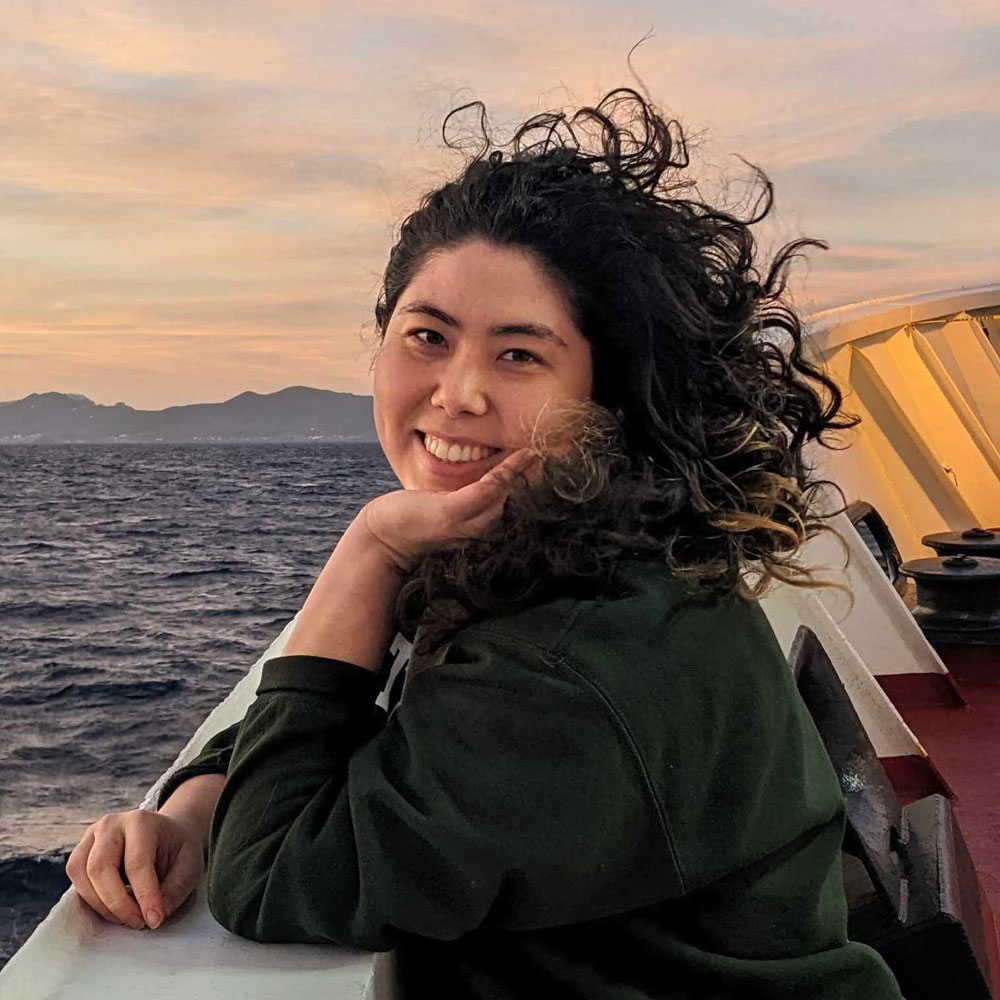
Luan Heywood
Luan Heywood is a PhD student at the University of Washington, where her research centers on the geochemistry of subduction zone magmas. Luan holds a BS Earth Sciences from the University of Iowa and a MS Geology from Western Washington University, where her thesis focused on volcaniclastic rocks and sediments drilled in the Izu-Bonin Arc by the International Ocean Discovery Program (IODP). After her MS, she worked for IODP as a Marine Science Technician on the drillship R/V JOIDES Resolution, alternating expeditions with onshore marine lab instrumentation development at the JOIDES Resolution Science Operator (Texas A&M University). She has also sailed as an Ocean Mapping intern on the NOAA Ship Okeanos Explorer, and on a small, K-12 educational marine science vessel on the Salish Sea.
Luan serves on the steering committee of Asian American and Pacific Islanders in Geosciences (AAPIIG), an affinity group for US-based earth scientists who are AAPI or of Asian- and/or Pacific Islander-descent. AAPIIG hosts networking meet-ups at several US earth and ocean science conferences, as well as an annual virtual seminar series during May for Asian American Native Hawaiian and Pacific Islander Heritage Month, for which Luan is one of the primary organizers.
Luan is interested in serving as TOS Student Representative with perspective from her previous career as a non-PhD holding oceanographer and technician, as well as her perspective as a current geological oceanography graduate student. Luan is passionate and engaged in efforts to diversify professional earth and ocean science spaces, and is in particular interested in efforts that foster international, interdisciplinary and intergenerational science collaborations as a tool for positive transformative change.
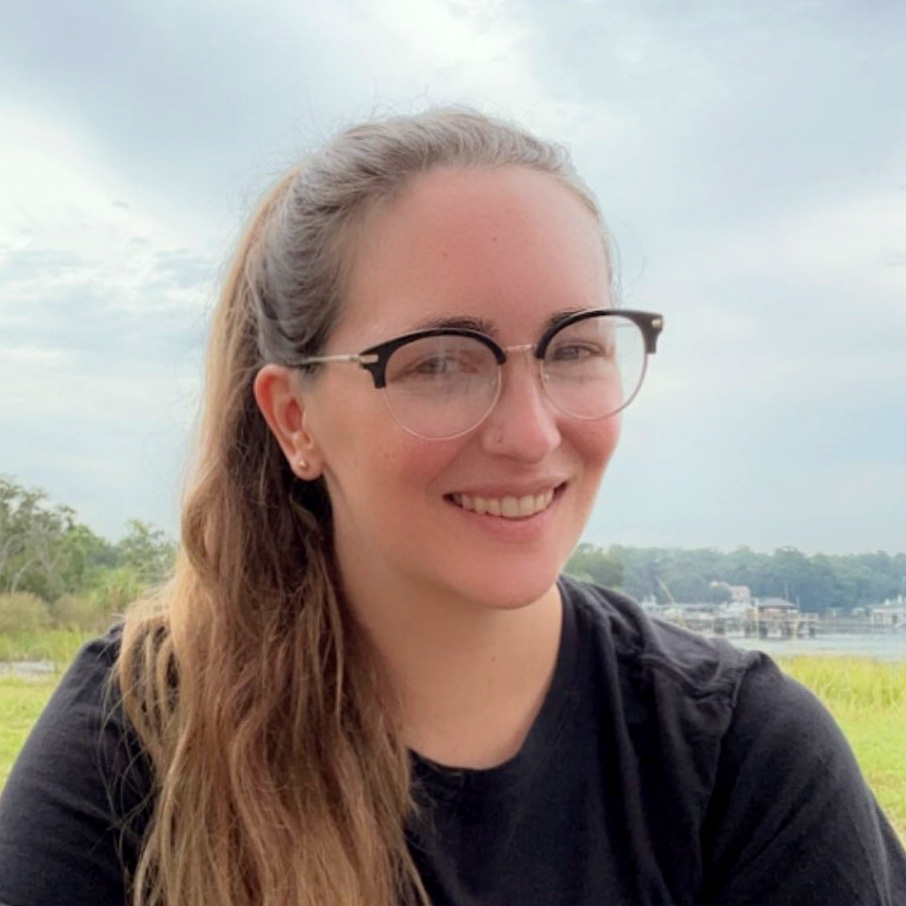
Charlotte Kollman
Advocating for the needs and concerns of both student and early-career researchers, facilitating mentorship opportunities, and promoting equitable initiatives that empower the next generation of ocean scientists will serve as my main priorities if selected as the next TOS Student Representative. I have extensive experience serving on organizational committees throughout my undergraduate and graduate degrees, and have also helped organize several academic conferences, including the successful completion of the Ocean Sciences Meeting in February of this year. One of my core strengths is my ability to balance research with service. Over the past year, I gained first-hand experience working alongside the EC members of AGU, ASLO, and TOS through the planning of events at the AGU Fall Meeting and OSM 24, including multiple panels throughout the conference that focused on addressing inequities and knowledge-gaps that are pervasive within the broader graduate student community. I have also actively sought out ways to learn more about/serve on DEI-related initiatives both within and outside of my graduate department. One example is my participation in URGE: Unlearning Racism in Geoscience, where I was tasked with developing a Lab and Safety Field Plan specifically designed to ensure the protection of at-risk communities while working in the field. This experience deepened my understanding of the intersectionality of scientific research and social responsibility, emphasizing the importance of incorporating equity considerations during field research. Currently, I am a PhD student within Dr. Cliff Buck’s Trace Metal Biogeochemistry lab. My research interests broadly involve the ways we can use isotopes to characterize oceanographic processes, and my dissertation will focus on the interactions between aerosol trace elements (TEs) and the surface ocean as part of a two-year time-series study at Station Aloha in the North Pacific. In addition to my research, I am particularly interested in the importance of knowledge sharing, collaboration, and mentorship. During my time as the student representative on the AGU Executive Council, my role as the Graduate Student Recruitment Chair in my department, as well as other roles I’ve held, I believe I have proven my dedication and passion for fostering a supportive and inclusive environment for early-career professionals and students, where their voices are amplified, and their contributions are valued. But I also recognize that there is so much more work to be done. Building a more inclusive and supportive scientific community starts by listening to, acknowledging and addressing DEI-specific challenges that may arise in the pursuit of knowledge. As the TOS Student Representative, I will actively work to cultivate a culture of respect and equity for all people within the Ocean Sciences. Thank you for your time and consideration.

© 2025 The Oceanography Society
1 Research Court, Suite 450-117, Rockville, MD, 20850, USA | Phone: (1) 301-251-7708 | [email protected] | Privacy Policy




